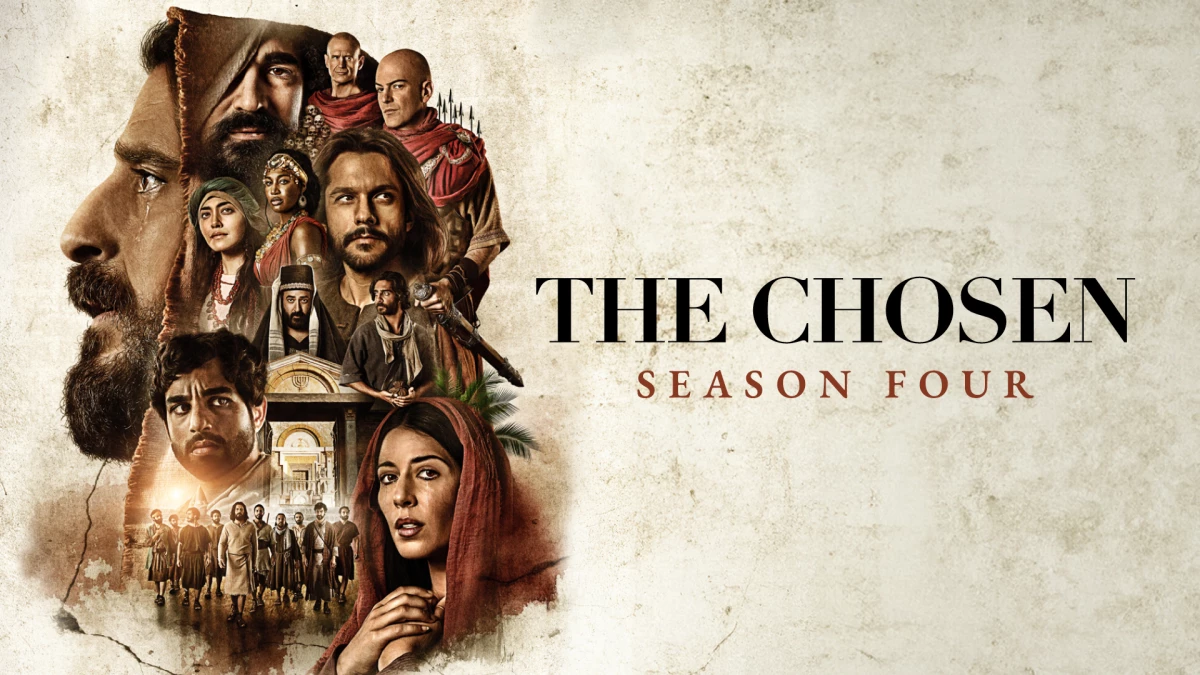In a world rich with diverse religious beliefs and spiritual traditions, the concept of The Chosen holds a profound place in the hearts and minds of millions. Whether rooted in ancient scriptures or modern storytelling, The Chosen symbolizes a special status—being selected by a higher power for a divine purpose. This idea resonates across cultures, inspiring individuals and communities to reflect on themes of destiny, responsibility, and identity. In this comprehensive exploration, we delve into the origins, themes, representations, and contemporary interpretations of The Chosen, uncovering why this concept remains so compelling today.
Origins and Background of The Chosen
Historical Context
The notion of The Chosen is deeply embedded in various religious texts. In Judaism, the term often refers to the Israelites, regarded as The Chosen People by God, signifying a special covenant established through divine election. This covenant, detailed primarily in the Torah, underscores the Israelites’ unique relationship with God and their mission to uphold His laws and spread righteousness.
Similarly, in Christianity, the concept extends to Jesus Christ, who is described as The Chosen One or the Anointed. The apostles and early followers were also considered The Chosen in the sense of being selected for a divine mission to spread the teachings of Jesus, emphasizing themes of salvation and moral responsibility.
Throughout history, religious figures such as prophets and saints have been regarded as The Chosen for their role in guiding humanity towards spiritual truths. These narratives reinforce a recurring theme: the idea that some individuals are divinely selected to fulfill specific destinies.
Popularization in Modern Media
In recent decades, The Chosen has transcended its scriptural roots to become a prominent theme in popular culture. The emergence of religious-themed films, literature, and television series has brought fresh perspectives to this concept. Notably, the TV series “The Chosen”, created by Dallas Jenkins, has gained widespread acclaim for its innovative storytelling and focus on the lives of Jesus and his disciples.
This series has played a pivotal role in modernizing the narrative, making the story of The Chosen accessible and relatable to contemporary audiences. Its success is evident in how it has fostered discussions about faith, purpose, and community among viewers worldwide.
Thematic Exploration of The Chosen
Religious and Spiritual Significance
Being The Chosen in a religious sense often implies a divine election for a higher purpose. It signifies that an individual or community has been selected by divine covenant to fulfill specific spiritual or moral responsibilities. For example, in Christianity, followers believe they are called to embody Christ’s teachings and serve as lights in the world.
Furthermore, the idea emphasizes that this selection is not arbitrary but rooted in divine intention, encouraging those who are The Chosen to pursue moral excellence and compassion.
Moral and Ethical Dimensions
Being The Chosen comes with significant moral responsibilities. It often entails a duty to live according to divine principles, exhibit humility, and serve others. Religious stories frequently depict challenges faced by those selected—struggles that test their faith and resolve. For instance, biblical figures like Moses or David faced trials that underscored their commitment to their divine missions.
Such narratives serve as moral exemplars, illustrating the ethical dilemmas faced by the divinely chosen and highlighting the importance of perseverance and integrity.
Identity and Purpose
For many, the label of The Chosen shapes personal identity, infusing individuals with a sense of purpose. It can inspire believers to live intentionally, aligning their daily actions with their spiritual calling. Discovering one’s purpose as The Chosen often becomes a central theme in personal growth journeys, leading to a deeper understanding of life’s meaning.
The Chosen in Religious Texts and Literature
Judaism
In Judaism, The Chosen People refer primarily to the Israelites, emphasizing a covenant that entails responsibilities such as adhering to divine laws (Torah) and exemplifying moral virtues. This concept underscores a special status, but also a divine obligation to serve as ethical exemplars for the world.
For more information, visit My Jewish Learning.
Christianity
Christian tradition identifies Jesus Christ as The Chosen, anointed by God to fulfill divine prophecy. His disciples and followers—such as the apostles—are considered The Chosen for spreading the gospel and embodying Christ’s teachings.
This concept influences Christian doctrines surrounding salvation, divine election, and moral duty, shaping the faith’s core beliefs.
Other Religions and Cultures
Many other faiths explore similar ideas of divine selection or special status. In Hinduism, for example, divine incarnations like Vishnu’s avatars are deemed The Chosen to restore cosmic balance. In Islam, prophets are chosen by Allah to guide humanity, illustrating a parallel concept across religious boundaries.
Comparative analysis reveals that while the terminology varies, the underlying themes of divine purpose and moral responsibility are universal among many spiritual traditions.
Contemporary Interpretations and Applications of The Chosen
“The Chosen” in Popular Culture
The representation of The Chosen in literature, movies, and especially the TV series “The Chosen” has reshaped how modern audiences perceive this concept. The series portrays a humanized, relatable Jesus, emphasizing vulnerability and compassion, which resonates deeply with viewers.
Beyond religious circles, secular adaptations often explore themes of destiny, leadership, and moral integrity, demonstrating the universality of the concept.
Personal and Social Implications
Many individuals interpret being The Chosen as a personal calling—motivating them to make positive changes, serve their community, or pursue spiritual growth. This sense of divine purpose can foster stronger community bonds, inspiring collective efforts aligned with shared values.
For instance, faith-based organizations often emphasize that everyone has a unique role as The Chosen in their community, encouraging acts of kindness and social justice.
Challenges and Criticisms
While the concept is inspiring, it can be misused or misunderstood. Some may interpret The Chosen as a sign of superiority or exclusivity, leading to arrogance or division. Ethical dilemmas arise when some claim divine authority to justify controversial actions. Criticisms also include the risk of exclusive thinking that marginalizes others.
Promoting a balanced understanding involves recognizing humility and shared human dignity alongside spiritual calling.
Focus on the TV Series “The Chosen”
Overview of the Series
The TV series “The Chosen” offers a fresh perspective on the life of Jesus and his disciples. Its storylines delve into their personal struggles, faith journey, and interactions, emphasizing themes of redemption, hope, and divine love. The series employs a multi-season format that explores different aspects of biblical history, making it deeply engaging for diverse audiences.
Reception and Impact
Since its debut, “The Chosen” has garnered praise for spiritual authenticity, storytelling quality, and character development. It has drawn millions worldwide, fostering a renewed interest in biblical history and faith-based entertainment. Its success demonstrates how modern media can positively influence spiritual discussions and bring religious stories to life.
Critical Analysis
The series is celebrated for its faithfulness to biblical texts, yet it also takes creative liberties to enhance narrative depth. Artistic strengths include compelling performances, cinematography, and relatable character arcs. However, some critics question the historical accuracy or narrative choices, leading to ongoing debates about representation.
Ultimately, “The Chosen” exemplifies how storytelling can bridge faith and culture, inspiring reflection and dialogue.
Reflection: Why The Chosen Continues to Captivate
The enduring appeal of The Chosen lies in its ability to resonate with universal themes: purpose, morality, and hope. It encourages viewers to reflect on their own life journeys and consider their roles in shaping a compassionate society. As society evolves, the concept of The Chosen remains relevant, inspiring new generations to seek meaning beyond the material.
Conclusion
From ancient scriptures to modern TV series, The Chosen embodies a powerful idea: that some individuals have a special divine calling. Whether seen through religious, moral, or cultural lenses, this concept invites us to consider our purpose, responsibilities, and connections with others. As we continue to explore and interpret The Chosen, its message of hope, faith, and moral integrity persists, reminding us of our potential to make meaningful change.
Practical Tips and Examples
- Reflect on your own sense of purpose by journaling or meditation, considering if you feel called to serve or lead in some way.
- Engage with faith-based media like “The Chosen” to deepen your understanding of biblical stories and modern interpretations.
- Participate in community service or volunteer work, embracing the idea that everyone can be The Chosen in their environment.
- Explore diverse religious perspectives on divine election by reading texts and consulting authoritative sources like Encyclopedia Britannica.
Key Points Summary
| Aspect | Details |
|---|---|
| Origins | Ancient religious texts in Judaism and Christianity; Divine covenants |
| Modern Media | TV series, literature, and movies exploring the concept |
| Themes | Divine purpose, moral responsibility, identity, community |
| Applications | Personal purpose, social responsibility, faith exploration |
| Challenges | Misinterpretation, exclusivity, misuse for personal gain |
Frequently Asked Questions (FAQs)
- What does it mean to be The Chosen in religious terms? It means being selected by a divine power for a specific purpose or mission, often associated with spiritual duties and responsibilities.
- Is The Chosen concept exclusive to Christianity? No, the idea of divine selection appears in many faiths, including Judaism, Islam, Hinduism, and others, each with its own interpretation.
- How does the TV series “The Chosen” depict the concept? It humanizes biblical figures, emphasizing their personal struggles and faith journeys, making the idea accessible and relatable.
- Can I personally feel like The Chosen? Yes, many find a sense of purpose or calling through faith, community involvement, or personal reflection, aligning with the idea of divine selection.
- What are some common misconceptions about The Chosen? That it implies superiority or special privilege, rather than responsibility, humility, and service.
- How can understanding The Chosen impact my life? It can inspire moral integrity, motivate community service, and deepen your spiritual journey.
- Are there resources to learn more about The Chosen in different religions? Yes, reputable sources include religious texts, educational websites like Britannica, and faith-based organizations.
- What are some ethical considerations related to The Chosen? Ensuring the concept is used to promote humility, inclusivity, and moral responsibility, avoiding arrogance or divisiveness.





